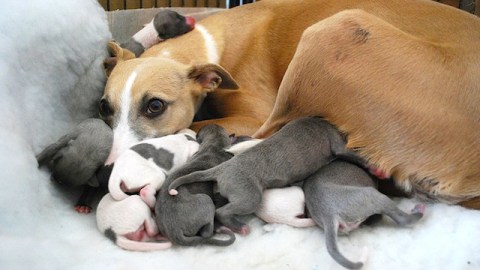Don’t You Mean “The Journal Of ‘Differentiated Being’ Ethics”?

The first issue of the Journal of Animal Ethics unexpectedly ruffled some feathers with an editorial note on terminology. The editors raised critics’ hackles by calling upon contributors to use “impartial” nouns to describe animals and our relations with them.
When Jill pointed to a story about the new journal in the National Post, I figured it had to be a spoof. Because, c’mon, a leopard doesn’t change its spots. The editors couldn’t really be calling on writers to renounce words like “critter,” “beast,” “vermin,” could they:
Animal ethicists are calling for a new vocabulary about animals, shunning words such as “pets,” “wildlife,” and “vermin” as derogatory and even suggesting “animal” is a “term of abuse.”
Common language on fauna betrays an “anthropocentric bias” and impedes an understanding of our interaction with the non-human species sharing the planet, argue the editors of the first academic journal dedicated to animal ethics in their debut issue.
Instead of “pet,” the Journal of Animal Ethics suggests “companion animal.” Rather than “wildlife,” they are to be called “free-living.” “Differentiated beings” or “non-human animals” is preferred to simply “animals.”
Words such as “vermin,” “beasts” and “critters” are stricken completely, along with similes such as “sly as a fox,” “drunk as a skunk,” “eat like a pig,” “slippery as an eel,” “breeding like rabbits” and “stubborn as a mule.” [NP]
I was able to track down the first page of the preface, which is all that’s available online for free. The “critter” injunction is verbatim on page one. There’s nothing on the first page to say that pets should be referred to as “differentiated beings,” but maybe they’re building to that. The introductory snippet doesn’t address the use of animal metaphors or similes. Maybe someone with a subscription to the journal can let us know in comments. Hurry up. We’re champing at the bit, here.
[Update: Many thanks to Mike for sending me the full article. The editors recommend that pets be called “companion animals” and explicitly discourage animal metaphors like “slippery as an eel” and “sly as a fox.” The National Post nailed this story. Even a blind pig finds an acorn now and then.]
Strictly speaking, the editors quote a fellow editor approvingly as saying that “animal” itself is a term of abuse because having one word for the whole Kingdom obscures the fact that there are many different kinds of animals (“differentiated beings”) out there.
Okay, maybe they have a point there. I hate it when insensitive assholes pretend that narwhals and naked mole rats and hyacinth macaws are all one big mass of undifferentiated “animal.” So rude! Good thing cobras don’t speak English.
But, then, why did they call it “The Journal of Animal Ethics”?
[Photo credit: A differentiated companion being and some recently differentiated mini-beings, by Penny and Simon, Creative Commons.]





